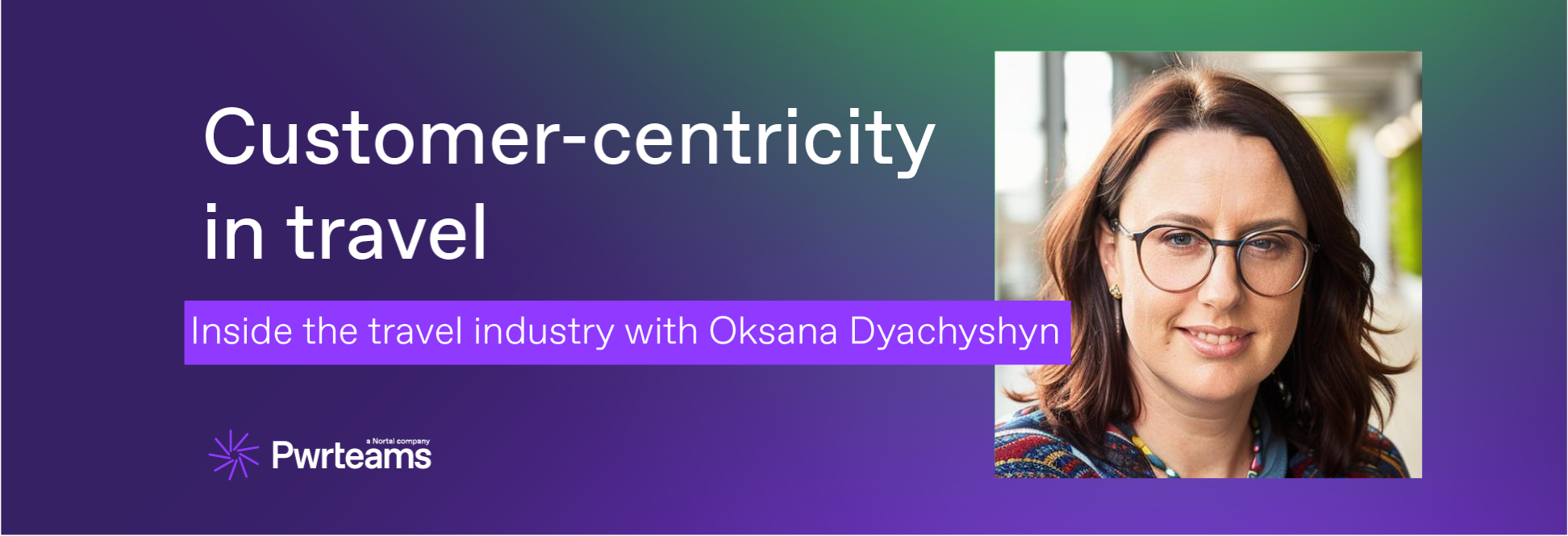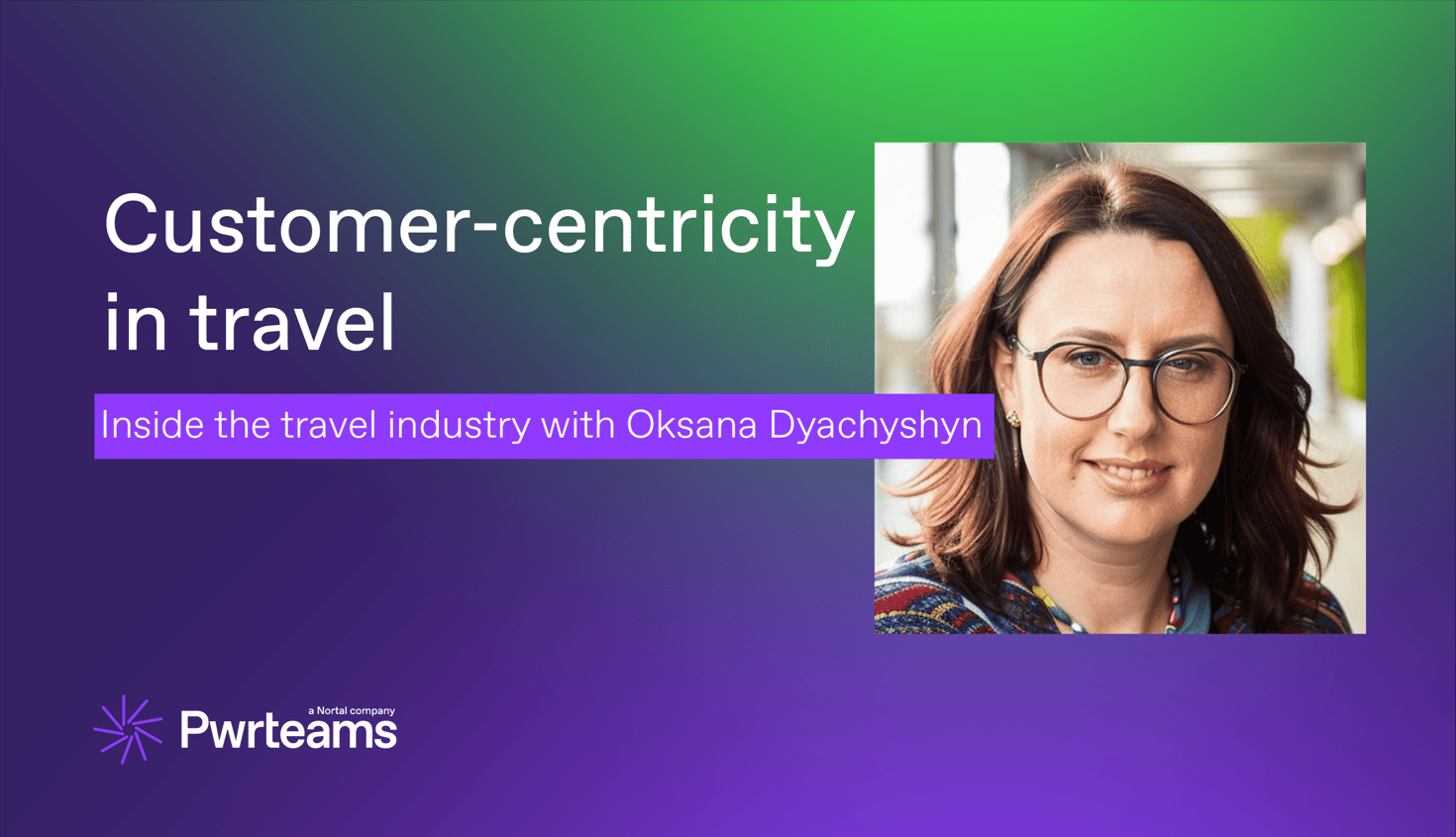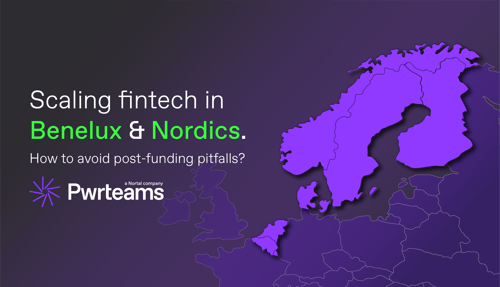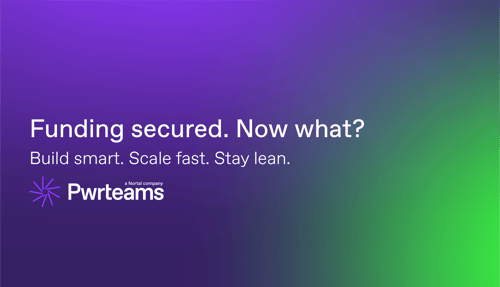How customer-centric technology is shaping the future of travel


Meet Katie. She has just stepped off the plane right into the electric buzz of Singapore. A rush of excitement hits her, with a flicker of nerves. The air is alive–foreign words flying past, neon lights flashing, temple bells echoing in the distance. She came here alone, choosing adventure over the cookie-cutter all-inclusive. She wanted something real. Unexpected. And she’s not the only one…
Travellers nowadays increasingly crave unique journeys, not just trips. In this fast-paced world, crafting travel experiences has become essential. Flexible booking, easy payments, and personalised service are must-haves for any successful travel business. Take our customer, TUI Group. With 19 million customers worldwide, 1,200 travel agencies, over 400 hotels, and five airlines operating under one name, attending to every customer's unique needs sounds impossible. Yet, they’ve made it their mission to tend to each traveller’s journey in a personalised, high-touch way, no matter the complexity of technology underneath.
By centralising everything around individual needs, they’ve earned both an edge over competitors and deep customer loyalty–proof that in the fast-moving world of travel, a personalised touch is the game-changer.
Augmented tech teams have played a crucial role in helping them and other travel businesses, large and small, put customers at the centre. How? Let’s find out.
The value of customer-centricity
Booking a flight and picking a hotel? That’s just scratching the surface. Travellers often spend over 5 hours a day researching in the 45 days leading up to their trip. With so many options–flights, hotels, restaurants–getting lost in the chaos is easy. The customer-centric approach helps them find their way out, facilitating travel planning and booking, and in a personalised manner.
One example are airlines. Instead of drowning travellers in endless route options and choices, they can recommend flights based on past bookings and favourite travel times. Hotels can use customer data to suggest the perfect room, offer local hotspots, or tailor loyalty rewards to individual needs. It’s these little personal touches that make travellers feel special, save them time, and turn a good trip into an unforgettable one (that they are more likely to repeat).
And especially Millennials and Gen Z are all about diving into unique travel adventures. With 71% of travellers feeling like planning is a maze, many are leaning on travel agencies to whip up personalised itineraries–from action-packed escapades to gourmet getaways. They make planning a breeze and ditch the hassle of juggling different vendors. And behind this seamless experience? It's all about using data-driven tech to put the customer first.
Technology centred around customers
Creating a customer-centric strategy in the travel industry isn’t just about adding tech–it’s a holistic approach. While 67% of senior decision-makers plan to boost tech investments, just stacking up tools isn’t enough. CIOs and CTOs need to look at the big picture, ensuring everything from channels to technologies works seamlessly to upgrade the customer experience. What software truly fits into this journey?
Integrated CRM systems
Customer Relationship Management (CRM) systems collect traveller data from various touchpoints–such as bookings, enquiries, feedback, and social media interactions–to build a comprehensive customer profile. This helps create tailored, personalised services that make every trip feel special.
This kind of tailored experience doesn’t just attract new customers; it builds loyalty and boosts the overall vibe of the trip. Yacht brokerage companies Sunsail & The Moorings did just that. They used HubSpot CRM to fine-tune their marketing, engaging customers with content that hit the mark and offering personalised services based on user interactions.
Cloud-native systems
Cloud is everywhere. Or... so you'd think. Surprisingly, only 30% of travel companies are fully on board. If you're still tied to extensive network hardware and specialised, legacy software, it's time to rethink. Moving to the cloud drives infrastructure, maintenance, and operational cost savings, but it also helps your business scale faster and ensures higher data security. These optimisations directly or indirectly benefit customers, too, as they release budgets and resources to focus on creating personalised, unique experiences.
Just look at Melbourne Airport. By migrating, aligning, and ordering data in a cloud-based data system, Australia’s largest 24/7 airport improved processes across the board, from building more targeted, efficient marketing campaigns to shortening urgent customer query response times from weeks to 24 hours. Following theirs and other examples, consider implementing cloud platforms that centralise and streamline data integration across critical travel services like passenger service systems, booking platforms, payment gateways, global distribution systems, and many others.
Mobile apps and portals
Today, 80% of travellers rely on mobile apps for everything–from booking flights to checking into hotels and finding their way around. These apps also make travel smoother by offering real-time, personalised recommendations based on their location and interests–suggesting local attractions or hidden gem restaurants right when they arrive at their destination.
 What's more, many offer offline functionality to make travelling easier by giving users access to core features like maps or boarding passes without an Internet connection. It further enhances the experience, as users can pull up important travel documents or listen to their favourite ebooks or podcasts while in aeroplane mode.
What's more, many offer offline functionality to make travelling easier by giving users access to core features like maps or boarding passes without an Internet connection. It further enhances the experience, as users can pull up important travel documents or listen to their favourite ebooks or podcasts while in aeroplane mode.
Travel companies that invest in user-friendly mobile assistance stand out and get attention. For example, the modern boutique hotel FlyZoo Hotel in Huangzhou was the first to offer self-service kiosks where visitors could book and pay for their stays through a mobile app.
Similarly, a booking app developed for one of our clients allows users to easily browse hotels and flights for the best deals. Quick search, detailed filtering options, and instant and secure reservation payments in one place reduced the booking time to under one minute.
AI and chatbots
In 2023, just 22% of travellers used AI to plan their trips, but that's set to change as AI gets smarter. Meet Wanderboat and Layla–your new travel BFFs. These AI-powered services analyse tons of data to help travellers plan trips by suggesting activities, accommodations, and restaurants within their budget. They’re not just about recommendations; they’re freeing up human agents to tackle the tricky stuff, making your travel planning smoother than ever.
AI also helps travellers break down language barriers. Apps like Notta make real-time audio translations, enabling travellers to communicate effectively in over 40 languages, and making their trips smoother, less stressful, and more enjoyable.
Data analytics
By studying browsing behaviour, past purchases, and feedback, data analytics tools are key to understanding what travellers really want. With trained data engineers, travel companies can take this tech to the next level, injecting machine learning to create hyper-personalised customer experiences. For instance, Smart predictive analytics tools like Spark or Kafka gather real-time data from channels like apps, websites, and booking systems to foretell customer preferences and foster data-backed decisions.
If the data shows a growing demand for green travel options, companies can spotlight eco-friendly stays. Analytics can also identify crucial patterns such as peak booking times, preferred destinations, or common pain points in the customer journey.
Event-driven architecture
From a traveller experience perspective, every action has to go seamlessly from one to another. When a customer books a trip or cancels a flight, their action is captured as an event that requires a rapid response. Event-driven architecture (EDA) allows handling such events in real time across distributed systems. Ensuring a smooth flow of information between systems processing check-ins, website logins, online purchases, etc., eliminates disruptions and delays. In effect, customer issues can be solved near-instantly, on a large scale, and in a personalised manner.
Adopting EDA is becoming increasingly common, and businesses that embrace this architecture are aware of the risks of not doing so. 46% of companies cite inaccurate decision-making as a key consequence of lacking user behaviour data, while 45% point to their inability to respond swiftly to emerging threats.
Powering customer-centric journeys with augmented teams
This all sounds terrific, but navigating customer-centric tech in travel isn’t exactly a walk in the park. It can be tough, especially with the industry still reeling from losing 62 million jobs in 2020. Finding skilled people is hard, and without them, innovation stalls, and costs climb.
But it’s not just about finding the right staff. Integrating new tech with old systems can be thorny, and managing tons of customer data demands accuracy. If data isn’t spot-on, personalisation falls flat, decision-making falters, and trust takes a hit.
With staff shortages and technology stagnation, travel and leisure companies seek travel-dedicated IT teams to push their business forward. Let’s see how they can make a real difference.
✅ Access to expertise
When you need tech professionals with travel industry experience, turn to a dedicated teams company like ours. Our vast network of over 2,000 professionals connects you with experts in architecture, engineering, data analysis, mobile, quality assurance, and agile delivery.
Our candidates come with expertise in cutting-edge technologies and agile approaches, and the massive TUI Group engagement is a prime example. Over the past four years, this partnership with the travel industry's iconic name has grown to include more than 200 technology specialists supporting TUI Group's diverse global operations, from five-star hotels and resorts to curated experiences, intercontinental flights, and both luxury and expedition cruises.
And what's the secret behind our joint success, with TUI Group and beyond? Our extensive geographical reach, along with a proven hiring framework and procedures that we've perfected over the years. This lets us quickly identify specialists with the essential skills to develop your travel software or app. And the best part? Engaging with us makes you forget the paperwork and legal complexities. We take full care of recruitment and team integration so you can focus on crafting those game-changing travel innovations.
✅ Flexibility and scalability
When you need to upgrade or extend your travel tech, you can get started with zero risk–no upfront fees, no hidden costs, just a clear flat fee. With 450+ placements in travel, we get what it takes to build flexible partnerships. Start with a small team for your niche project, then scale up as your needs grow. It’s all about giving you the flexibility to tackle labour shortages without the hassle and expense of in-house hiring.
✅ Faster time-to-market
Speed is everything in today’s travel world. Knowing this, we bring dedicated tech teams into your operations in just 4-8 weeks, cutting down project timelines and minimising downtime.
With experts from the industry and a smooth onboarding process, these teams help you roll out tech faster. And when you’re adding customer-centric tools like AI chatbots, multilingual platforms, or mobile apps, speed matters.
We also make sure your team sticks together. Our talent-matching process has led to an impressively low attrition rate of 4.3%, keeping your projects stable for the long haul.
Creating indelible travel experiences
Let’s go back to our Katie. From stumbling on a tucked-away ramen spot to feeling the calm of a Zen garden amidst the city buzz, her journey was hers–enabled by customer-centricity. So, how do you ensure your customers can also experience what she did?
Giving them truly unique and memorable experiences is what sets you apart. And investing in innovative tech can deliver those sought-after, once-in-a-lifetime moments. All it takes is the right team of specialists to turn your vision into reality. You will find them here.
 August 5, 2025
August 5, 2025
Inside an Azure-based OWASP ZAP implementation
Read the post July 22, 2025
July 22, 2025
Scaling fintech in Benelux & Nordics – avoiding post-funding pitfalls
Read the post May 13, 2025
May 13, 2025
Close your round, scale your roadmap: how nearshore tech teams accelerate UK fintech growth
Read the postWrite your own
success story
with Pwrteams!
Share your details in the form, tell us about your needs, and we'll get back with the next steps.
- Build a stable team with a 95.7% retention rate.
- Boost project agility and scalability with quality intact.
- Forget lock-ins, exit fees, or volume commitments.